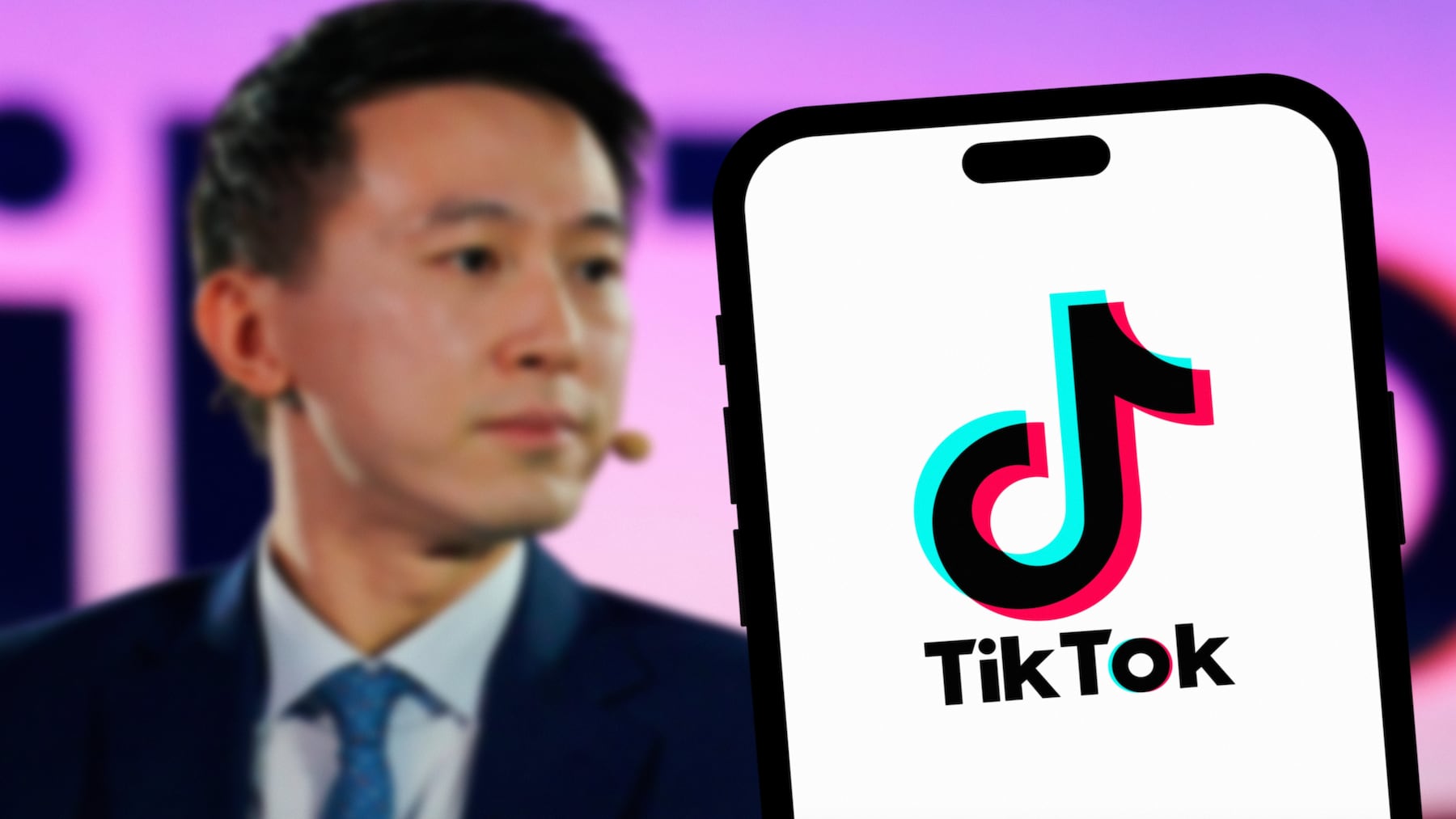
At Monday’s Met Gala, the guests won’t be the only ones worrying about how they look.
This year’s annual fashion-industry blowout and fundraiser for The Metropolitan Museum of Art’s Costume Institute will be sponsored for the first time by TikTok, a company recently deemed a credible-enough threat to US national security under its current ownership that the US passed a law giving its Chinese parent, ByteDance, nine months to sell the app or see it banned. TikTok is also lead sponsor of the The Costume Institute’s spring exhibition, “Sleeping Beauties: Reawakening Fashion,” while its chief executive, Shou Chew, will serve as honorary chair of the gala alongside Loewe creative director Jonathan Anderson.
It’s an awkward position for the high-profile event, and while many guests and onlookers will surely brush off the worries about TikTok, its organisers, including Anna Wintour, global editorial director of Condé Nast and editor-in-chief of Vogue, don’t have that luxury. They will have to deal with some thorny questions about how to manage the event. Will Chew be present? Will he and Wintour take pictures together on the red carpet?
“If I were consulting Vogue, I would say maybe those are the kinds of pictures I wouldn’t take right at this moment, because they just don’t want to engage themselves in a dialogue they are not meant to be in to begin with, unless they want to take a stance and talk about how this ban is ridiculous,” said Mory Fontanez, who founded the consultancy 822 Group and today works as a reputation manager and leadership coach.
Vogue, Condé Nast and The Met itself could be seen as picking sides in a debate about the dangers of a Chinese-owned tech platform being used by millions of Americans no matter what they do.
TikTok was named the lead sponsor of the event well before the new US law came into being. Details were announced back in February, prior to the latest flourish of security concerns. By that point TikTok had faced various political challenges in the US, including former president Donald Trump’s efforts to ban it. But after Joe Biden took the presidency, he seemed content to let the matter go. US officials only picked up the campaign against TikTok in March. When the Met Gala’s organisers revealed that TikTok would be the lead sponsor and Chew an honorary chair, the decision seemed largely uncontroversial.
It did raise at least a few eyebrows, though.
“Disturbing the Met Gala would allow TikTok’s CEO to be an ‘honorary’ chair,” US Sen. Rick Scott, a Republican from Florida, posted on X in February.
For many lawmakers on both sides of the aisle, the worry is that no Chinese-owned company can be truly independent of China’s government. The thinking goes that even if TikTok wanted to remain independent — as it maintains it is — it could be compelled to provide user data or used for influence campaigns that shape what its 170 million US users see.
Arguments have continued about the validity of these concerns. Beijing has other means of getting data, like the market of poorly regulated data brokers, and suspicions that views suppressed inside China are suppressed on TikTok have been hard to definitively confirm. But governments from Canada to Norway have found the risks substantial enough that they’ve prohibited TikTok on official devices.
Of course, there’s currently nothing illegal or even unusual in organisations or brands working with TikTok. The app still has a large, active user base, much of which sees it as a place to watch fairly benign content like dog videos, makeup tutorials and, come next week, footage from the Met Gala red carpet. The Biden campaign itself joined the app in February and continues to post on it.
TikTok has also called the US law “unconstitutional” and said it would fight it in court, raising the prospect of a drawn-out legal battle. Given that it will be months or years before the app gets sold or shut down, brands are carrying on with business as usual. Just this weekend, Selena Gomez’s Rare Beauty held a pop-up in collaboration with TikTok Shop in Los Angeles.
“Brands are still pumping money into it,” Jess Hunichen, co-founder of influencer management agency Shine Talent Group, told The Business of Fashion. “We’ve not seen a shift in strategy yet from brands. [The ban] feels far off.”
Even so, Condé Nast and The Met will be throwing their big party with TikTok just as the new US law has raised the degree of seriousness around the company. This week, European Commission president Ursula von der Leyen said she wouldn’t rule out a ban of TikTok in the EU. (To add a different complication for Condé Nast, on Monday the Condé Nast Union, likely including staff that planned to work the Met Gala, vowed to “walk off the job” if contract negotiations didn’t progress.)
In a statement, The Met said that as a non-profit it relies on a variety of individuals and organisations to fund its exhibitions, programmes and research. “We’re grateful to TikTok for their support of The Costume Institute’s spring 2024 exhibition — which invites audiences to explore The Met’s renowned collection through groundbreaking displays — and the benefit gala, which provides the Museum with critical funding,” it said.
Condé Nast said it defers to The Met as the gala and exhibition are Costume Institute events and Wintour is also a Met trustee.
Fontanez pointed out that the gala and its organisers probably don’t have to worry too much about how their core audiences will react. Many Vogue readers are likely on TikTok, and the ban is a complicated issue without a lot of popular support, especially among younger Americans.
But nobody wants to be a target for critics or politicians looking to score political points either. Whether or not the organisers are concerned, they need to at least be prepared for whatever issues might arise, Fontanez said.
“I would imagine there’s been a lot of conversation about it internally at Condé Nast and Vogue,” she noted. “I don’t think it will be business as usual.”


